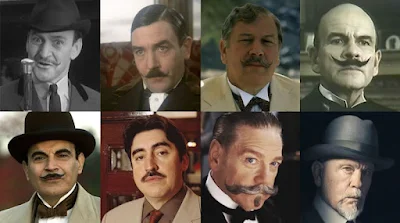The Kashmir Files (Hindi; 2022)
Writer & Director: Vivek Agnihotri
This post would probably draw a lot of flak, especially after Singapore's censors recently banned this film. Singapore's justification for its ban is that it is provocative and gives a one-sided portrayal of Muslims in a horrible light that can potentially cause enmity between communities.
According to the affected community depicted in this movie, the Kashmiri Pandits, it is precisely the reason why the film 'Kashmir Files' was made. It claims to be the voice of the descendants of what could simply be put as the original inhabitants of the Cradle of Civilisation. Back in the days, aeons ago, Kashmir was the centre of knowledge; of philosophy, mathematics, astronomy, theology, you name it. It was the place thinkers worldwide used to congregate to unravel the Universe's secrets.
From the 14th century onwards, their peaceful existence went into turmoil with the infiltration of Islamic invaders from the West. Waves after waves of invaders, from the Sunni to Shia denominations, had tried their luck at usurping the land and its beauty. The Pandits also underwent tumultuous times under the Moghul dynasty. All in all, they all wanted to change Kashmir into an Islamic country (Darul Islam). As decreed in the Sharia Laws, the non-believers were imposed exorbitant taxes (jizya). The invaders' battle cry had been consistent - 'Convert, die or leave'! Under the threat of death or maiming, many Pandits embraced Islam. Again as per Islamic law, the non-believers were slaughtered, and their female companions were taken as captives to be raped or kept as sex slaves as part of their war spoils. (Kashmir, without Kashmiri men but with their women).
Before the 1990 exodus, some say genocide, history has recorded six other exoduses starting with the 14th century.
 |
Maharajah Hari Singh
Rumours have it that his 1921 blackmail scandal by a Parisian sex worker was used as a bargaining chip to rope Kashmir into India. |
In 1947, at Indian Independence, Kashmir was ruled by a Hindu monarch, Maharaja Hari Singh, ruling over a Muslim majority. This princely state was given the option of becoming part of Pakistan or being absorbed into the Indian Dominion. When the Maharaja opted to join India, Pakistani tribesmen and later the Army sneaked in to create mayhem. Nehru then decided to call the United Nations to mediate the situation in Kashmir. That proved to be a big mistake. Kashmir was divided into two, each controlled by India and Pakistan, with an area of 'no man's land'. From then on, there was no peace, so to speak. The democratically elected leaders have been accused of practising double standards. The rebel yell for a free Kashmir and 'Quit India' has been ongoing. With its ascension to India came special legislation like Article 370 that gave Kashmir certain powers to rule itself. By 1990, the number of Islamic terrorist groups in Kashmir had reached discerning levels.
Growing up in the 90s and keeping updated with the day's events, I was fed the idea that Kashmir had its internal problems. That was all. Now, the alternative media is telling me that there was another aspect to Kashmir's history. As Napoleon had purportedly called history 'a fable mutually agreed upon', in modern times, we find the narrative that the general public is fed is politically and ideologically convenient. François Gautier, a French journalist who covered Kashmir at that time, has a totally different version of what happened there. The mainstream rejected his reporting and photojournalism articles as they did not align with their narratives. Gautier, disillusioned by the whole media business, became a naturalised Indian and is now delving into rewriting an alternative history of modern India.
The movie's premise is that the world had wronged the Kashmiri Pandits by not giving an accurate account of what took place in the Kashmiri Valley, which made almost 90% of the Pandits exit the country. That was more than meets the eye, and the film hoped to put the facts straight. The Pandits insist that it was not an exodus but an attempt by the Islamic militants at genocide. It tells the tale of terrorists masquerading as Indian Army personnel luring them to a safe haven in all that chaos to kill en masse and bury them in mass graves. It tells in gory detail how students turned their guns against their teachers and how cordial neighbours turn into informants in the name of rabid religious convictions. It describes how the world, through the media and the academia, is duped into believing the Pandits left of their own accord.
Krishna Pandit, a student leader from one of those who left the Valley in the 90s as a toddler, has no recollection of what happened to his family (his parents and an elder brother). He was informed that his parents died in a scooter accident, and his brother is still missing. The grandfather who brought him to Delhi is a broken man suffering from PTSD. Krishna is fed with the idea that the cruel acts of the Central Government of India turned them into refugees. Krishna is active in the 'Free Kashmir' movement and is prodded by his Professor to become its leader. Its members scream 'Azadi', meaning freedom.
He gets a firsthand account of what actually occurred in his hometown when his grandfather dies, and he has to return to Kashmir with his remains to perform the final rights. He is introduced to his father's friends and the militant leader who carried out the atrocities to form his own opinion of what transpired in 1990s Kashmir.
This film had a worldwide release to roaring success. Many of its viewers, who personally endured the events, came out immersed in tears, transported back in time to relive those suppressed memories. They claim that it was an accurate account of what really happened there.
Everyone agrees that what the jihadists are doing simply cannot be in line with any teachings worth being called 'the way of life'. The interpretation of the religion by fanatics simply defies logical thinking. Anyone with a little brain can surely see what the jihadists are doing are wrong by any account. The trouble is that others who profess the same religion decide to keep mum and turn a blind eye to their atrocities. They condemn the Wahabbis acts in private, but in public, they would rather not run down a fellow believer. Each interprets the same line in the scriptures quite differently. Their inactivities ire the non-believers and give the impression that the moderates condone their actions. Hence develops the schisms.

 Anyone with half a brain will know that gun kills, and it does that much more at ease with the least effort. Experiences in countries that outlawed gun usage have drastically reduced gun-related crimes. One does not need guns to live in modern times. Easy access to guns just makes it necessary to possess bigger and more powerful firearms, even overpowering what the law enforcement officers have at their disposal.
Anyone with half a brain will know that gun kills, and it does that much more at ease with the least effort. Experiences in countries that outlawed gun usage have drastically reduced gun-related crimes. One does not need guns to live in modern times. Easy access to guns just makes it necessary to possess bigger and more powerful firearms, even overpowering what the law enforcement officers have at their disposal.
























